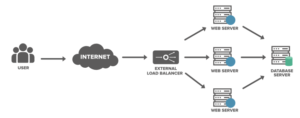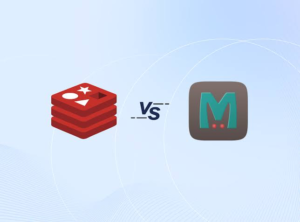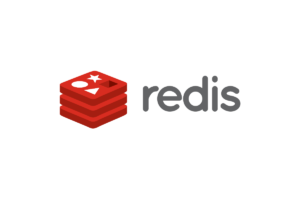
Introduction
In today’s rapid data landscape, vast information is constantly generated, stored, and swiftly retrieved, highlighting robust database systems’ crucial role. Two fundamental terms that often surface in conversations about data organization and manipulation are DBMS (Database Management System) and RDBMS (Relational Database Management System). These acronyms epitomize disparate methodologies in managing data, each accompanied by its distinct array of attributes, benefits, and application scenarios.
In this comparison between DBMS and RDBMS, we’ll explore core concepts, functionalities, and differentiators in information management. By delving into definitions, characteristics, and applications, we seek to provide you a thorough grasp of how these systems impact data interaction and utilization.
For experienced data pros and eager learners, this DBMS vs. RDBMS guide offers valuable insights into modern data solutions. Come, let’s uncover the nuances that set DBMS and RDBMS apart in our journey of discovery through database management intricacies.
What is DBMS ?
A DBMS is a precisely crafted software application that streamlines data creation, organization, storage, retrieval, manipulation, and management intricacies. All these functions are seamlessly orchestrated within a meticulously structured and optimally efficient framework. Simply put, a DBMS acts as a tool enabling users and applications to engage with databases, reservoirs of extensive information storage.
What is RDBMS ?
An RDBMS is a specialized DBMS that adheres to the relational model’s principles for data organization. It provides a structured and organized way to store, manage, and manipulate data in a tabular format. At the heart of an RDBMS lies the fundamental concept of employing tables as the cornerstone for depicting data entities. These tables interconnect through the establishment of relationships facilitated by keys, forming a cohesive tapestry of organized information.
Differences between DBMS and RDBMS
The core distinction between an RDBMS and a DBMS lies in their data organization and handling capabilities. While both systems are used for managing databases, they have distinct features and functionalities that cater to different use cases. Here are the key differences between RDBMS and DBMS:
| Key | DBMS | RDBMS |
|---|---|---|
| Data Organization | A DBMS can handle various types of data models, including hierarchical, network, and object-oriented. It is more flexible in terms of data organization. | An RDBMS strictly adheres to the relational model, organizing data into structured tables with rows and columns. It enforces relationships between tables using keys. |
| Data Integrity and Constraints | DBMS offers basic data storage and retrieval capabilities but may have limited support for enforcing data integrity constraints. | RDBMS places a strong emphasis on data integrity and provides mechanisms to enforce constraints such as primary keys, foreign keys, unique keys, and more. |
| Query Language | DBMS systems often have their own query languages for data manipulation. | RDBMS primarily uses SQL (Structured Query Language), a standardized language for querying and manipulating data. SQL is powerful and supports complex queries. |
| Relationships and Joins | While some DBMS systems can represent relationships between data, they may not handle complex relationships and joins as effectively as RDBMS. | RDBMS excels in establishing and managing relationships between tables, enabling efficient joins and complex queries involving multiple tables. |
| Data Duplication and Redundancy | DBMS may allow more data duplication and redundancy due to its flexible data models. | RDBMS encourages the normalization of data to minimize redundancy and ensure data consistency. |
| ACID Transactions | ACID (Atomicity, Consistency, Isolation, Durability) properties may not be as strictly enforced in DBMS systems. | RDBMS ensures ACID compliance for transactions, guaranteeing data integrity and reliability. |
| Use Cases | DBMS is suitable for simpler applications where data organization is not as complex, and data integrity requirements may be more relaxed. | RDBMS is ideal for applications that require strong data integrity, complex data relationships, and the ability to perform advanced queries. |
| Examples | File systems, early data storage systems. | Oracle Database, Microsoft SQL Server, MySQL, PostgreSQL. |
Conclusion
In conclusion, understanding the distinction between a Database Management System (DBMS) and a Relational Database Management System (RDBMS) is crucial for effective data management and decision-making. While both systems play pivotal roles in handling data, they exhibit notable differences that cater to diverse use cases and requirements.
A DBMS provides a flexible approach to data storage, retrieval, and manipulation, accommodating various data models such as hierarchical, network, and object-oriented. It’s ideal for applications with simple data needs, not emphasizing complex relationships or data integrity constraints.
Conversely, an RDBMS strictly follows the relational model, structuring data into tables with rows and columns. It excels in ensuring data accuracy, integrity, and relationships through features like primary keys, foreign keys, and normalization. Leveraging SQL empowers users with intricate queries and complex joins, rendering it ideal for applications requiring robust data integrity and advanced querying.
In the dynamic landscape of data-driven solutions, the choice between DBMS and RDBMS should be guided by the specific needs of your project. Whether you’re developing a streamlined application with basic data storage requirements or a complex enterprise system with intricate data relationships, the understanding of these systems empowers you to make informed decisions that align with your data management goals.
DBMS and RDBMS are vital in data management, with distinct benefits boosting data use, efficiency, and innovation. In the ever-evolving tech landscape, these systems will further mold data-driven solutions, preserving data’s value in the digital era.



